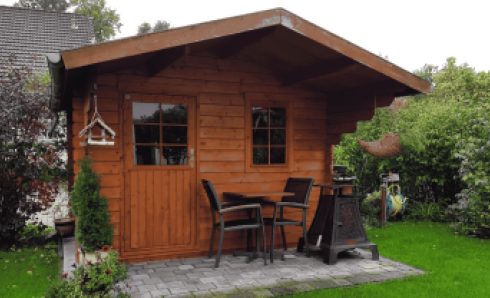Buying a house is one of the most significant financial decisions you'll make in your lifetime - and if you’re about to do it, that kind of sentence probably doesn’t help the jitters. With so many questions, factors, and consequences at play, it can quickly feel like you’re out of your depth.
However, approaching the process carefully, methodically, and comprehensively can make all the difference. It's crucial to ask the right questions throughout the process to ensure you make an informed and confident choice. Here are ten key questions to consider when purchasing a property in Ireland.
1. What is the Current Condition of the Property?
Understanding the property's current condition is essential for assessing its value and potential future costs.
Structural Integrity and Needed Repairs
Before making an offer, evaluate the structural integrity of the house. In particular, look for signs of:
- Damage such as cracks in walls
- Bulging or heaving walls
- Uneven floors
- Dampness
- Sagging roof
- Roof leaks
- Sticking windows and door
Determine if any major repairs or renovations are needed and factor these into your budget. Consulting with a professional surveyor can provide a detailed assessment of the property's condition.
Interior and Exterior Condition
Inspect both the interior and exterior of the property. Knowing the property's condition helps you avoid unexpected expenses and ensures the house meets your standards. Carefully check the condition of:
- The roof
- Windows
- Doors
- Insulation
- Plumbing
- Electrical systems
- Overall maintenance
2. Why is a Thorough Home Inspection Important?
A thorough home inspection is crucial for uncovering potential issues that might not be immediately visible.
Uncovering Hidden Problems
A professional home inspection can reveal hidden problems such as structural defects, pest infestations, and faulty wiring. These issues can significantly impact the safety and value of the property. An inspection report provides a clear picture of the home's condition, helping you make an informed decision.
Ensuring a Sound Investment
Investing in a thorough inspection ensures that you are making a sound investment. If significant problems are discovered, you can negotiate repairs with the seller or reconsider your offer. This step can save you from costly repairs and potential hazards in the future.
3. What Should I Know About the Local Area?
The local area plays a crucial role in your quality of life and the property's long-term value.
Schools and Amenities
Research the quality of local schools, as this can be a significant factor if you have or plan to have children. Proximity to amenities such as shops, parks, public transport, and healthcare facilities enhances convenience and can add to the property's desirability.
Crime Rates and Future Development Plans
Investigate crime rates in the area to ensure safety and peace of mind. Additionally, look into future development plans, which can affect property values and living conditions. Planned infrastructure projects or new housing developments can significantly impact your decision. Just because the area seems like a peaceful, idyllic location doesn’t mean it still will be in 10 years.
4. Should I Evaluate the Energy Performance of the House?
Evaluating the energy performance of a house can lead to significant cost savings and environmental benefits.
Energy Efficiency Ratings
Check the property's energy efficiency rating. A higher rating indicates better insulation and energy-saving features, which can reduce utility bills. Consider energy-efficient windows, doors, and appliances to enhance the property's efficiency further.
Potential Cost Savings
An energy-efficient home saves money on utility bills and increases the property's resale value. Look for features such as solar panels, modern heating systems, and proper insulation. These elements contribute to lower energy consumption and a more comfortable living environment.
5. Are There Any Planning Permissions or Restrictions?
Understanding planning permissions and restrictions is essential for future modifications or expansions.
Checking for Permissions and Restrictions
Before purchasing, check for any existing planning permissions for the property or restrictions that could affect your plans. This includes zoning laws, heritage listings, and conservation areas. Knowing these factors helps you plan future renovations without legal complications.
Impact on Future Modifications
If you plan to extend or renovate the property, ensure these changes comply with local regulations. Consulting with local planning authorities or a solicitor can clarify what is permissible, avoiding potential issues down the line.
6. How Do I Assess Property Values in the Area?
Assessing property values in the area ensures you are paying a fair price for your new home.
Researching and Comparing Property Values
Research recent sales of similar properties in the area to get an idea of market values. Online property portals and local estate agents can provide valuable data. Comparing properties helps you understand if the asking price is reasonable or if there is room for negotiation.
Ensuring a Fair Price
A fair price reflects the property's condition, location, and market trends. Overpaying can impact your financial stability and future resale value. Conduct thorough research and consider professional valuations to make an informed offer.
7. What Recurring Expenses Should I Be Aware Of?
Homeownership comes with recurring expenses that need to be budgeted for.
Property Taxes and Insurance
Property taxes vary by location and can be a significant expense. Ensure you understand the local tax rates and budget accordingly. Additionally, home insurance is essential for protecting your investment—research insurance options to find the best coverage at a competitive rate.
Maintenance and Utilities
Regular maintenance is necessary to keep your property in good condition. This includes repairs, gardening, and general upkeep. Your budget should also consider utility bills for heating, electricity, water, and waste management.
8. What is the History of the Home?
Knowing the home's history can reveal important information about its condition and value.
Previous Ownership and Major Repairs
Investigate the property's ownership history and any significant repairs or renovations that have been undertaken. This can provide insight into the property's maintenance and any potential issues. Ask the seller for detailed records and consider a title search for more information.
Past Issues and Disclosures
Sellers are legally required to disclose certain information about the property, such as structural issues or past disputes. Ensure you receive all necessary disclosures and understand any past problems that could affect your decision.
9. How Should I Analyse the Purchase Price and Negotiate?
Analysing the purchase price and negotiating effectively can save you money and secure a better deal.
Evaluating Market Conditions and Comparable Properties
Understand current market conditions and compare the property with similar homes in the area. Look at recent sales data and consider location, size, and condition factors. This analysis helps you determine a fair offer price.
Tips for Effective Negotiation
Effective negotiation involves being informed and confident. Start with a reasonable offer based on your research, and be prepared to discuss any issues that affect the property's value. Be willing to walk away if the price is not right, and consider using a solicitor or estate agent to assist with negotiations.
10. What are the Closing Costs Involved in Buying the Home?
Understanding the closing costs involved in buying a home ensures you are financially prepared for the final stage of the process.
Legal Fees, Stamp Duty, and Inspection Fees
Closing costs can include legal fees, stamp duty, and inspection fees. Legal expenses cover the cost of hiring a solicitor to handle the transaction. Stamp duty is a tax on property transactions, and inspection fees cover the cost of professional surveys and inspections.
Avoiding Surprises at the Final Stage
To avoid surprises, ask your solicitor for a detailed breakdown of all closing costs. Budget for these expenses in advance and ensure you have sufficient funds available. Understanding and planning for these costs helps ensure a smooth closing process.
Secure Your Investment with 123.ie Home Insurance
Asking the right questions at the right time when buying a house in Ireland helps you make a well-informed decision and ensures a smooth buying process. You can confidently invest in your new home by considering the property's condition, local area, energy performance, and potential costs. It will never be a complete breeze, but knowing you’ve done the proper research can significantly reduce stress levels.
It’s always a wonderful feeling when you finally get those keys. This random house that you chose is now your home. The next logical step is to protect your cherished investment with comprehensive home insurance from 123.ie. We offer a range of coverage options tailored to your needs, with competitive rates and exceptional customer service. We know how important finding the right home is - now let us take care of it for you.





